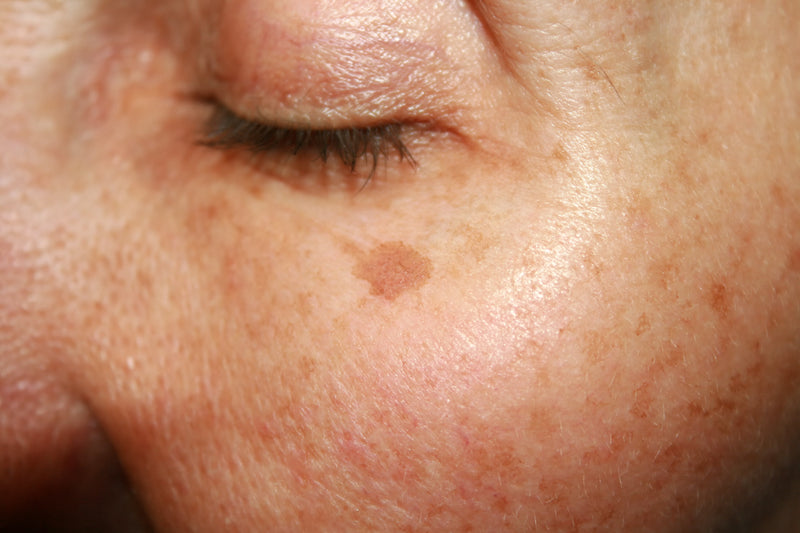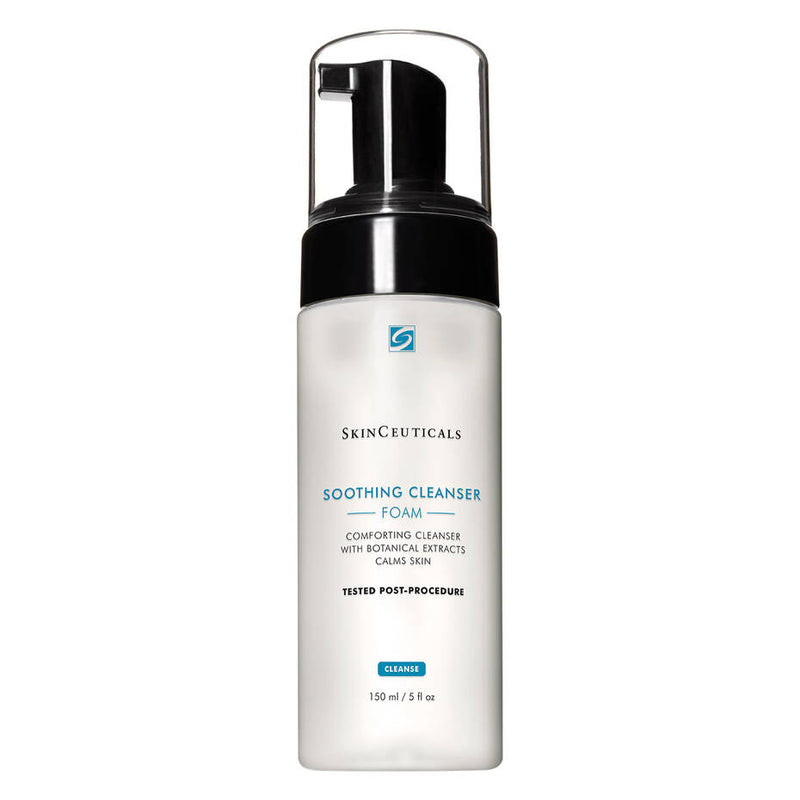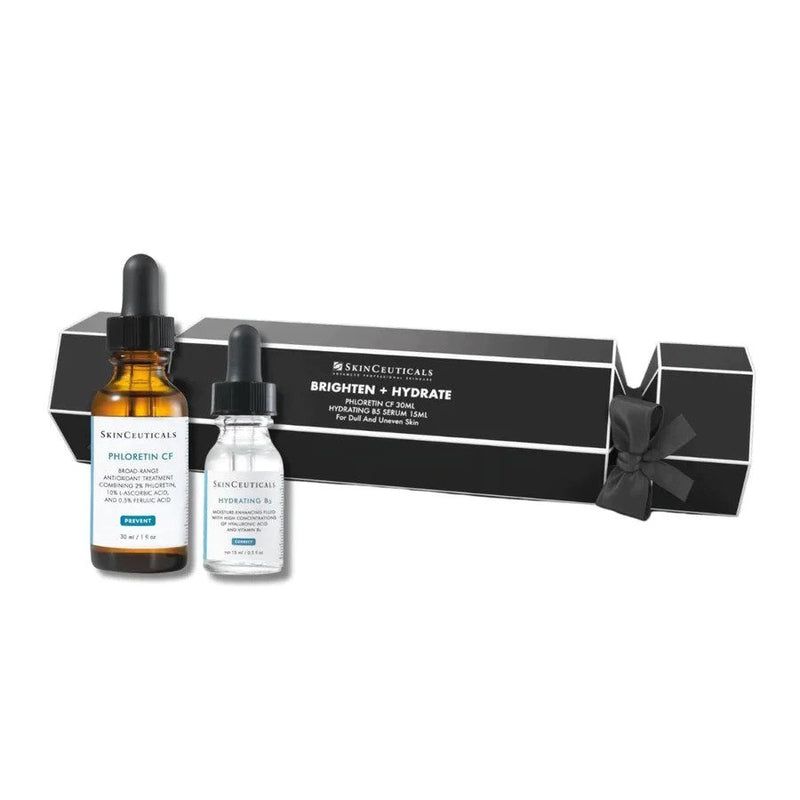Latest News – by NualaWoulfe Admin
11 Essential Home Skincare Steps and Their Importance
Remember your home skin care is essential – what you do every day, twice a day has significant impact on your skin – so you want your skincare to be effective. We have 11 tips, along with our suggested products below:
1. Use SPF - no excuses!
While you’ll be used to wearing sunscreen when outdoors, it’s important to know that the same UVA and UVB rays can penetrate clouds and windows. Not only that, but there is evidence that blue light from screens can damage skin. So, whether you’re only popping to the shops or having a duvet day, you should still always apply a minimum factor 30 every day.
Skinceuticals Advanced Brightening SPF 50
SkinCeuticals Ultra Facial UV Defense Sunscreen
Hands off –
Doors, buttons, work equipment… how many things do you touch a day without washing your hands straight afterwards? Just think how much dirt, oil and germs accumulate on your fingertips… now you will you touch your face? This can lead to breakouts and other skin conditions. Wash your hands as often as possible and avoid touching your face unnecessarily.
Brighten with Vitamin C
If you want a brighter complexion, vitamin C is a must-have! Known as an antioxidant, vitamin C helps protect the skin’s surface from environmental aggressors such as UV and pollution, as well as the oxidative damage caused by free radicals. Use it every morning after cleansing.
SkinCeuticals Serum 10 - 30ml
SkinCeuticals Phloretin CF® - 30ml
SkinCeuticals Double Defence C E Ferulic Kit. Free Full Sized Ultra Facial Defence Worth €36
SkinCeuticals Double Defence Phloretin CF Kit. Free Full Sized Advanced Brightening UV Defence SPF 50 Worth €49.00
SkinCeuticals Silymarin CF - a new antioxidant for oily or blemished skin.
Don’t forget the lips
Your lips are also susceptible to the sun’s radiation, leading to a dry and damaged appearance. Apply a little of your hyaluronic serum Ha Intensifier by Skinceuticals is a good option then apply.
SkinCeuticals H.A. Intensifier - 30ml
SkinCeuticals AOX Lip Complex morning and night and more regularly if required.
Exfoliate dead skin cells
One of the reasons our skin can look dull is because of dead skin cells. Scrubbing these away with a good exfoliator is crucial if you want to bring back a natural glow. This month Skinceuticals Retexturising serum is our product of the month – resurfacing is very important particularly as we age – over time, regardless of lifestyle, skin begins to change. Signs of ageing may appear. Fine lines, wrinkles, discolouration, and loss of elasticity can become more visible. Retexturing Activator® targets two mechanisms — exfoliation and hydration — to help promote the skin’s natural regeneration process, helping to visibly reduce the appearance of surface lines and help transform the look of the skin with a smoother, softer looking texture. This serum can also be used as a compliment to retinol use – use on the nights you do not use retinol.
SkinCeuticals Retexturing Activator® - 30ml
Retinol 0.3 contains 0.3% pure retinol and is enhanced with the latest stabilisation and delivery technologies to provide maximum efficacy.
Scientifically proven to help diminish the appearance of fine lines, wrinkles, and age-spots from both intrinsic and photo ageing. Retinol 0.3 can aid in reducing the appearance of pore sizes, while correcting blemishes and blotchiness associated with problematic skin. Retinol 0.3 is ideal for skin new to Retinol products.
SkinCeuticals Retinol 0.3 - 30ml
Stay hydrated
As well as drinking around eight glasses of water a day – good for your general health as well as your skin health – you should consider investing in a great hydrating formula that will leave your face looking fresh!
Obagi Hydrate is a great cost effective cream.
Another popular treatment cream is SkinCeuticals Triple Lipid Restore 2:4:2 - 48ml.
Cleanse
Clean your skin thoroughly at the end of each day, you’ll ensure that all the dirt, bacteria, oil, and pollution has been removed from your skin. It will improve how your treatment skincare absorbs into the skin.
SkinCeuticals Simply Clean - 200ml
SkinCeutical's Glycolic Renewal Cleanser
SkinCeuticals Gentle Cleanser - 250ml
DMK Milk Cleanser
DMK Deep Pore Cleanser
Emphasise those eyes
The skin around your eyes is thinner and show signs of ageing more quickly than other areas of the face. Whether you suffer from dryness, puffiness, dark circles or pigmentation, an eye cream can work wonders. Look out for ones that contain hyaluronic acid and peptides if you want to see a real difference.
SkinCeuticals A.G.E. Eye Complex - 15ml
SkinCeuticals Mineral Eye UV Defense SPF 30 - 10ml
SkinCeuticals Eye Balm - 15ml
Eminence Marine Flower Peptide Eye Cream
Say goodbye to coffee
Bad news if you’re a coffee lover. Even decaf can make your skin look dehydrated. Focus on upping your intake of water throughout the day if you want to get your glow back.
10. Hydrate with HA
Hyaluronic acid (HA) is what we use in a lot of dermal fillers to volumise and contour your face, so you’ll appreciate that it’s going to be great in skincare too. When looking for a HA serum, see the molecule is different molecule size so the hyaluronic acid is a vehicle that penetrates the skin to be effective where it needs to be – smaller molecules travel deeper into the skin – and brings more active ingredients deeper in to the skin.
Catch up on sleep
Unsurprisingly, sleep has a key role in rejuvenating your skin. During the third and fourth stages of sleep, your body goes into repair mode and produces cells and hormones that help boost collagen production, which results in healthier skin! Avoid screens before bedtime, try a relaxing podcast or drink a herbal tea if you struggle to get to sleep.
We would love if you would listen to our podcast where we discuss this topic and countless others!
Invest in retinol
Derived from vitamin A, retinol is renowned as one of the most powerful tools in skincare. It helps to exfoliate and smooth skin, while diminishing the appearance of hyperpigmentation, fine lines and wrinkles. There’s lots of different strengths of retinol, so if you’re new to it, start low! It must also only be applied at night as it can make your skin more sensitive to light. Speak to us if you’d like advice on how to get started.
SkinCeuticals Retinol 0.3 - 30ml
We love results
We hope you found these skincare tips useful. If you’d like to invest in skincare that’s clinically proven to make a difference, check out our shop or chat to our skincare experts to find out what’s best for your specific concerns.



















































